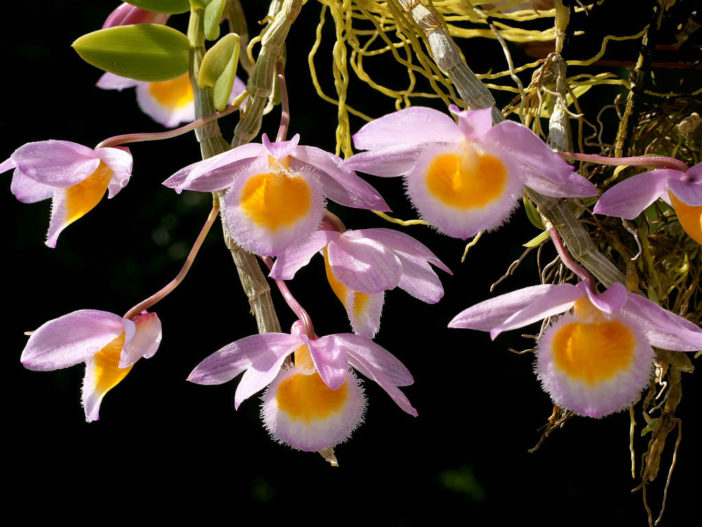In this fellowship I have been learning about the function of CITES, and how it regulates the trade of wild animals and plants. The Convention on International Trade of Endangered Species of Wild Fauna and Flora (CITES) aims to ensure that the international trade of wild animals and plants does not threaten their survival in the wild. CITES requires permits when wild animals, plants, or products made from them are being traded internationally. The project I am working on focuses on assessing the conservation risk of commonly traded non-native orchid species. My goal is to identify the orchids that pose a low risk to the survival of the species in the wild to reduce permit paperwork.

 source: hawaiiansunshine
source: hawaiiansunshine
Being a botany major and plant enthusiast, this internship aligns with my interests and career goals. My previous experience has been with native plant species, so being introduced to non-native species has been a real treat so far. While learning about the different species of orchids I look up pictures of them and find them so fascinating and beautiful. Cattleya coccinea (main image), Dendrobium loddigesii (shown below), and Bulbophyllum medusae (shown above) are a few of the species that have caught my eye. As an undergrad just starting my career, collecting experiences like these are valuable to me for a few reasons; I have the chance to network with amazing individuals, I get to see the different types of work done in the field of conservation, and I get the opportunity to make a positive impact.

Source: travaldo.blogspot.com
Agency: U.S. Fish and Wildlife Service
Program: Latino Heritage Internship Program (LHIP)
Location: Fish and Wildlife Headquarters, Washington Office

